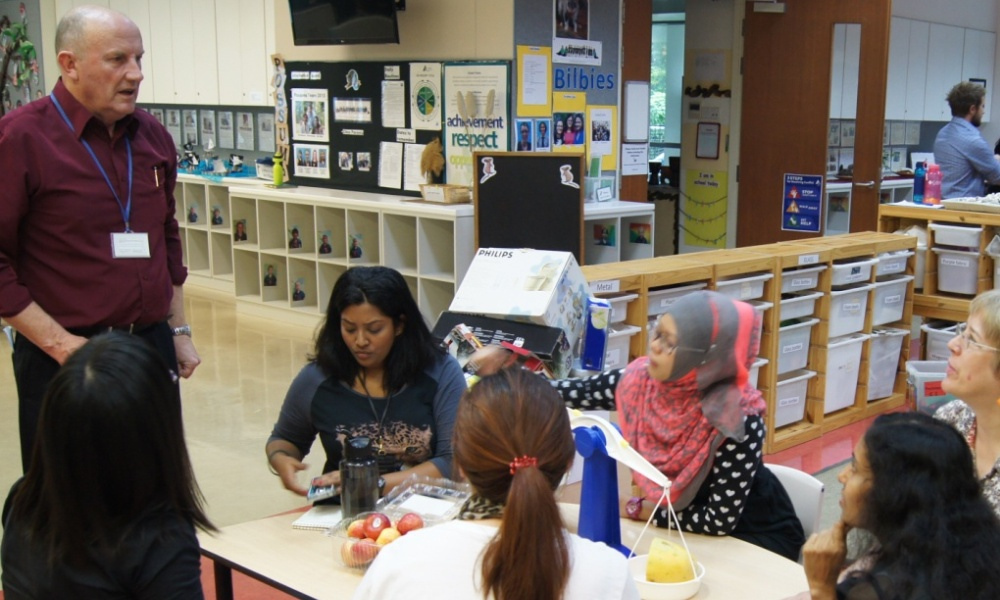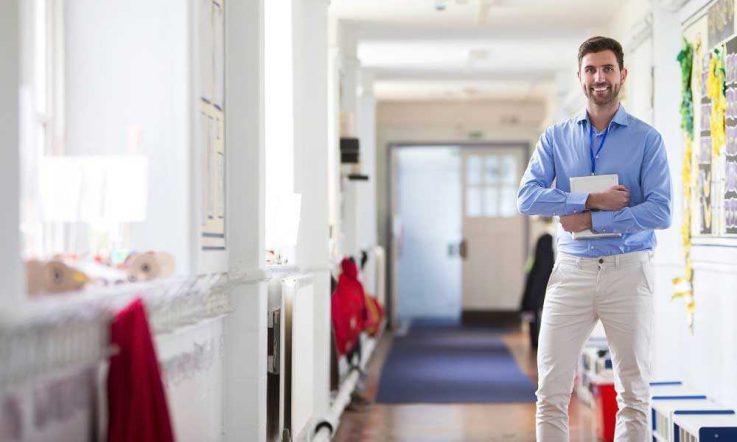In the second of two articles highlighting a practical school example of a long-term strategy to challenge high achievers, we explore the early impact of the approach and the next steps.
When leaders at the Australian International School (AIS) in Singapore examined the data and discovered a need to extend their most able students in maths, they turned to research for help.
That prompted the creation of an initial three-year program to support differentiation in the elementary years, devised with the expert input of ‘critical friend' Professor Peter Sullivan.
Indeed, it was the Monash academic's 2011 review of research into mathematics teaching (Sullivan, 2011) that inspired Mignon Weckert early on in the process. Fast forward to today and the Assistant Head of Elementary School and her colleagues, supported through regular visits by Sullivan, are midway through the program and beginning to see the fruits of their labour.
Weckert reflects that, with 1600 students from Early Years to Year 5 and as many as 12 teachers per grade level, implementing a long-term strategy takes time and a whole staff commitment.
‘It takes so long to change practice and particularly when you've got such big teams like ours. [On the one hand] that's a plus because you … are working together in teams, but it's also a vehicle to turn around - you can't do a little circle and you've got to have everyone on board.
‘What was beautiful yesterday, the Heads of Year were sharing with Peter where they're up to with their teams and it was so good to hear them say that some of the ones that were pretty cynical about the whole thing are now listening to other teachers within their team who have made the change and … [are] being much more positive about it.
‘So, it's a whole change process, it's big and we've only really just started … but already we're seeing some good things and it's exciting.'
Those changes have included a curriculum redesign, consistent approach to selecting resources, collaborative lesson planning and a new approach to classroom differentiation. Prior to the program in 2014, staff used small group rotations and whole class instruction, with a focus on accuracy. Now, educators are encouraged to experiment with challenging, open-ended tasks and shift the focus to students' strategies and mathematical thinking.
‘… it's how do you deal with a class as a whole, setting low floor but very high ceiling challenges where all kids can come in but you've also got the challenge there for all students,' Weckert explains.
Where before there was an inconsistent approach to unit planning – leading to many strands being covered across a term and several topics per week – a switch to yearly overviews has allowed staff to chunk units and work with students on developing a deeper understanding of concepts.
The early results are encouraging. Weckert says rather than being put off, students are finding tasks that challenge them ‘fun' and are enjoying having the extra time to think about different strategies.
The focus for the next school year will include sequencing of lessons, use of assessment, teacher collaboration and instructional leadership. Sullivan is also working with Year 6 to 9 teachers, with a view to preparing them for a similar change in practice.
Weckert says although the elementary school program is an initial three-year plan, the leadership team is taking a longer term view, adding that all the while staff ‘absolutely have to keep looking at the data' to continually monitor and assess the impact.
‘We've got the student achievement data - that is a given that we do all the time, what we're starting to collect now is attitudinal data from the students in terms of: What kind of problems do you like? Do you like working on your own?
‘[We are looking at] what the research around the world is saying, but Peter is also helping us research ourselves and seeing where we need to go next, or what is the data that we're getting back from teachers, leaders or students saying where we need to go next. So, he's very much modelling the kind of process that you do with good research and inquiry.'
References
Sullivan, P. (2011). Teaching Mathematics: Using research-informed strategies. Australian Education Review 59. ACER, Camberwell, Vic.
Are you providing stretch tasks to challenge your students, wherever they are in their learning?
As a school leader, what opportunities are there for staff to do collaborative lesson planning?
If you've implemented a change in practice, how are you assessing the impact?



